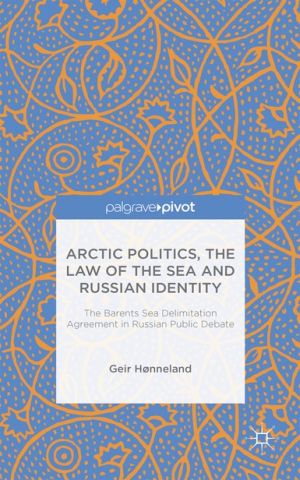
Political interest in the Arctic has been growing rapidly in recent years, with Russia - the Arctic state with the longest shoreline - at the centre of attention. A first indication of Russia's stance on Arctic delimitation politics came with the 2010 signing of the agreement with Norway to divide the long-disputed area in the Barents Sea into two equal parts. The agreement was hailed in the international community as a sign of Russian willingness to compromise in Arctic politics. Segments of the Russian public, however, saw it as a veritable act of treason and the agreement barely scraped through the ratification process in the State Duma. This book analyses the Russian opposition to the delimitation agreement in light of both the Law of the Sea and Russian identity, arguing that the agreement's critics and proponents inscribe themselves into different Russian narratives about Russia's rightful place in the world.